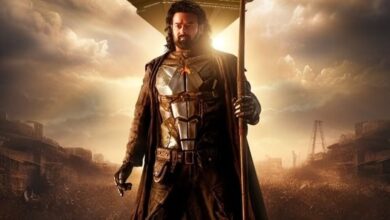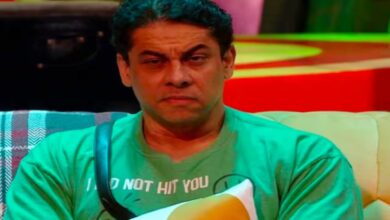“Trial By Fire” and “Kohrra” exposed my range to the public: Randeep Jha, a filmmaker
He astounded his listeners in “Trial by Fire” with an act of honesty and purity that may cause one to become silent inside.

‘Kohrra’ communicated more via tempo, silences, and silences unsaid than through words and gestures. In both cases, ideas were expressed through nuanced retaliation.
Filmmaker Randeep Jha, who co-directed ‘Trial By Fire’ and directed the web series ‘Kohrra,’ is also about to begin work on a big-budget picture being produced by a major studio. While ‘Trial By Fire’ received positive reviews from critics, he acknowledges that ‘Kohrra’ was the film that took the world by surprise and prompted the interest of several prominent figures in the industry to contact him and discuss collaborating on a project.
Working on a web series in Punjabi did not seem like a huge problem for someone who was originally from Bihar and had trained for many years under theatrical instructor Barry John in Delhi.
Punjabis and Punjab are inextricably linked to Delhi. You run into someone from there almost daily. If you reside in the nation’s capital, you will undoubtedly become extremely acquainted with their sensitivities. I’ve always enjoyed reading about current events, and Punjab’s various differences have always captivated me, he says to IANS.
While acknowledging the contributions of Gunjit Chopra, Sudip Sharma, and Diggi Sisodia, the authors of “Kohrra,” Jha insists that he aimed to explore his artistic sensibilities and avoid adhering to a rigid formula or falling into the Bollywood clichés that depict Punjabis.
“To be very honest, it was a stage set. Using my background in theater, I carried out the assignment. Since the majority of the performers had experience in theater, everything went well. I had a specific’setting’ in mind for each scene, including the performers’ movements and reactions.”
He desired stillness in “Kohrra” to speak, yet “Trial by Fire” was verbose.
While acknowledging that it was a risk, Jha says he has always had faith in the viewers’ intellect.
“In wounded societies that have experienced dark times, there are times when pauses and quiet convey way more than what is spoken,” says the director of the highly regarded movies “Halahal” (2020) and “Kartaa” (2018). But did he think “Kohrra” would get such a large audience and a great deal of critical acclaim?
“Not at all; we just went with the flow,” Jha says with a grin. Even though the authors had been working on it for two years, I could see the enormous potential as soon as I read the screenplay. I read the tale while writing “Trial by Fire.” I just moved forward at the first available window, and everything fell into place. It was crucial for me to keep an eye on the show’s pacing. I was prepared to take the chance that the ‘fog’ merited a semicolon. Since it was a web series rather than a movie, I could handle it. This program has shown in numerous ways that success does not always follow slickness. More analogies and meanings emerge with a slow burn. Because of the integrity of the language and the variety of aspects of Punjabi culture we were able to portray, the program was appreciated not just by those in metropolitan regions but also by those in rural Punjab who are used to seeing commercial Punjabi films.”
Jha says that most producers are pleased by the versatility he displayed in “Trial by Fire” and “Kohrra,” and he attributes the success of the program to the offers he has been receiving from large studios.”Numerous producers said that they found it difficult to accept that the same individual had helmed both programs. Indeed, they have both played a significant role in igniting my career.”
Working closely with both Anurag Kashyap (‘Ugly’, ‘Mukkabaaz’, ‘Raman Raghav’) and Dibakar Banerjee (‘Shanghai’), the filmmaker emphasizes that he picked up a lot of knowledge from both of them.
“Anurag has the rare capacity to find quick solutions to issues. He won’t raise a fuss—he’ll improvise. His ability to make decisions quickly would astound everyone on the set. Dibakar has exceptional planning skills. In his mind, everything is quite clear,” he remembers.
Jha acknowledges that OTT platforms have enabled him and other aspiring filmmakers to express tales in the manner of their choice. He claims that several other young directors have also greatly benefited from digital platforms.
“OTTs have allowed writers and directors to be honest to the craft and themselves without the stress of box office.”
And I’ve always thought that people can relate to tales that come from the earth. Thanks to digital channels, a large number of new filmmakers have gained recognition in recent years by presenting tales in unique ways,” he emphasizes.
Jha, who has gained recognition, has one wish now that he is well-known: “I pray that I keep finding new stories and do not hold back from telling them the way I want to,” he says in closing.







